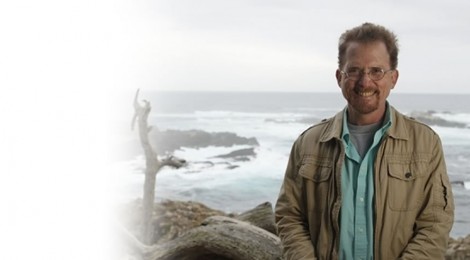
Get to Know a Member Series: Kent Glenzer
For this month’s member profile, we asked Kent Glenzer, Associate Professor and Acting Program Chair for Master’s in Public Administration at the Monterey Institute of International Studies, formerly with Oxfam America and CARE, to tell us a bit about his ideas about social sustainability.
We start with an easy question: defining social sustainability. He takes the challenge in stride, and breaks social sustainability into six related perspectives:
a) Agreements: The willingness and ability of people to implement a particular economic, political, environmental, business, health, welfare, or other public policy, procedure, project, or program.… It is distinctly social in that there must be compacts formed, people can opt in or opt out… and the very consensus that might have propelled the program from the start is subject to revision as citizens, policy makers, and stakeholders of other kinds make judgments about whether things are working.
b) Perpetuation: Here, sustainability largely refers to whether a particular group/community is able to continue with norms, values, practices, with ways of life, in the face of such larger forces.
c) Equity: in the distribution of benefits from political, economic, and environmental rules/institutions/policies/procedures. Includes i) effective forms of political accountability and ii) economic policy and practices that are importantly distributive in nature…. This operationalization is aligned with common definitions out there of social sustainability that highlight inter-generational equity.
d) Democratized innovation opportunities: “The opportunity to innovate and to obtain benefits for either individuals, family, or communities through such innovation is wide-spread, democratized in some important way.”
e) Tolerance: a community’s (size doesn’t matter; it could be a nation-state, it could be a small rural village) capacity to accept difference and to see diversity as a form of social rigor and vigor, just as diversity serves our ecosystems.
f) Institutional disagreement resolution mechanisms: I use “institutions” to mean “the rules of the game” that permit nonviolent resolution of social disagreement.
Successes and limits of the international development enterprise in addressing social sustainability
Glenzer argues that international development has been working on incorporating these elements of social sustainability for decades, though this is “not always done well.” He identifies several challenges, including the deeply problematic ideological commitments that work against these ideas, as well as a lack of funding, attention, and interest in social sustainability: “it is the human equivalent of species preservation by the likes of WWF….and WWF will tell you…it’s easier to get support to save a cute panda cub then some unknown and ugly insect in the Amazon.”
However, Glenzer believes that social sustainability can be addressed successfully with the strength of a “clear moral argument, pretty clear boundaries (‘what’s the problem?’), and known strategies.” He advocates for meeting the challenges with an approach “rooted in place/space/time (i.e., a particular context), and always through first coming to some understanding – and value judgments – about people’s own norms, standards, values, and institutions.”
For this reason, Glenzer sees his efforts as necessarily partial, relying on the strengths and capabilities of communities and community members, which must be central to any efforts that will address the aspects of social sustainability above. He believes that this “appreciative” approach has gained currency in international development efforts, despite the danger that it might become watered-down:
“I also think that the late 1990s emergence of ‘rights-based approaches’ were, at the start, an important break with past practices in international development, although like so many other laudable ideas in the international development enterprise the term has been somewhat bleached of its meaning.”
‘Interest aggregation’
Glenzer also sees value in “putting more energy and effort into building larger networks of marginalized/excluded actors. This ‘interest aggregation’ in the form of a powerful voice – this perhaps most directly related to operational definition (d) above – has always been and continues to be crucial.” As the Integrated Network for Social Sustainability, we concur whole-heartedly, and hope to continue creating opportunities for these kinds of connections.
When asked about the visibility of social sustainability, Glenzer had several questions for us: Visible to whom? Visible for what reason? In what ways is social sustainability invisible, how has that happened, and what does this say about a strategy for visibility?
We’ll forgive him for turning the tables on us because these are excellent questions, as is his next comment, which challenges the idea of visibility:
“I know that answering a question with a question – or bunch of questions – isn’t all that helpful. But I struggle to answer the question directly, due to its many facets. Within the little arena that my six operational definitions of social sustainability creates, I would say that more attention to social sustainability as it relates to definitions c-f is important. I’m just not sure it’s a “visibility” thing, per se. I think that social sustainability needs to be constructed within a programmatic discourse – right now, this means a language of “outcomes”, “impacts”, “results” – and this can be very challenging for academics whose strength is often analytical and deductive rather than synthetic, strategic, and action-oriented. I think that social sustainability proponents need – most likely – to find more and better partners in the world of social justice NGOs and figure out how particular components, or building blocks, of social sustainability can be worked into government, donor, private sector, and philanthropic priorities.”
Following from his experiences last May at the first INSS conference, he also sees curricular development as an important piece of this, whereby professors can help students develop the skills and abilities to complete this work.
What this means for INSS?
We look forward to having Kent Glenzer join us in April for the INSS conference, even if he can only do so virtually, because these ideas about connecting through networks and incorporating social sustainability are at the heart of many of the INSS efforts, including those on curricular development and outreach. As an advisory committee member, we look forward to his help in guiding our efforts.


